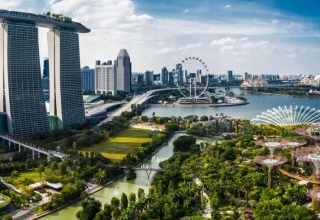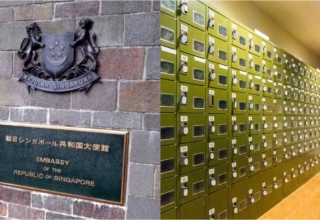
Taylor Swift, the global pop superstar, has recently announced her Red (Taylor’s Version) world tour, which will kick off in June 2024. The tour will feature songs from her re-recorded album of the same name, as well as some of her other hits and fan favorites. Swift’s fans, also known as Swifties, are eagerly awaiting the chance to see her live on stage after a long hiatus due to the COVID-19 pandemic.
However, not all Swifties will be able to attend her concerts, as some of them live in countries that are excluded from her tour schedule. One of the reasons for this is the exclusivity clause that Swift signed with the organizers of the Singapore Grand Prix, which will host her only show in South-East Asia on September 22, 2024.
What is the exclusivity clause?
The exclusivity clause is a contractual agreement that prevents Swift from performing in any other country in South-East Asia within a certain period of time before and after her Singapore show. This means that Swift cannot hold concerts in countries such as Indonesia, Malaysia, Thailand, Vietnam, Philippines, and others, even if there is a high demand for her tickets.
The purpose of the exclusivity clause is to ensure that the Singapore Grand Prix, which is one of the most prestigious and lucrative events in the region, will attract more visitors and generate more revenue by having Swift as a headline act. The organizers of the event, Singapore GP Pte Ltd, reportedly paid a hefty sum to secure Swift’s appearance, and they want to protect their investment by preventing any potential competition from other nearby markets.
How did the fans react?
The news of the exclusivity clause has sparked mixed reactions from Swift’s fans in South-East Asia. Some of them expressed their disappointment and frustration on social media, saying that they felt left out and discriminated against by Swift and her team. They also criticized the Singapore Grand Prix for being selfish and greedy, and for depriving other fans of the opportunity to see their idol live.
On the other hand, some fans defended Swift and her decision, saying that she had no choice but to sign the exclusivity clause, and that she still cared about her fans in other countries. They also urged their fellow Swifties to respect and support Swift, and to hope for better chances in the future.
Keep Reading
What are the implications of the exclusivity clause?
The exclusivity clause has raised some questions and concerns about the impact of such agreements on the music industry and the fans. Some experts have argued that the exclusivity clause is unfair and unethical, as it limits the artist’s creative freedom and the fans’ access to live music. They have also warned that the exclusivity clause could set a dangerous precedent for other artists and events, and that it could harm the diversity and vibrancy of the music scene in South-East Asia.
However, some others have defended the exclusivity clause, saying that it is a common and legitimate practice in the entertainment business, and that it benefits both the artist and the event. They have also pointed out that the exclusivity clause is not permanent, and that it does not prevent Swift from performing in other countries in the future.
The exclusivity clause that Taylor Swift signed with the Singapore Grand Prix has sparked a heated debate among her fans and the music industry. While some view it as a necessary and beneficial arrangement, others see it as a harmful and unjust restriction. The exclusivity clause reflects the complex and competitive nature of the music business, and the challenges and trade-offs that artists and events face in the global market.


























